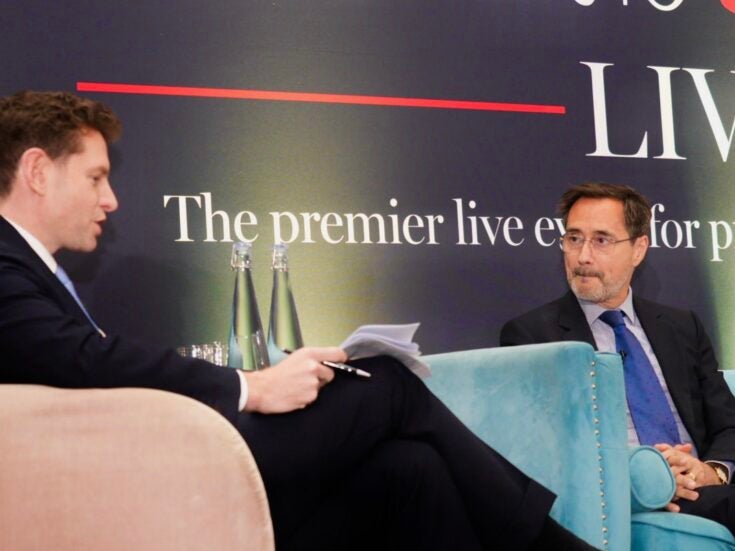
SPEAR’S HAS A lot of experience when it comes to family businesses and succession, so naturally I wasn’t surprised when I got an email from benedictxvi@popemail.com. What could be more of a family business than inheriting a position bequeathed to Peter by the son of God with a pun that rattles through the ages?*
But like with all family businesses, when the patriarch retires, a vacuum is often left, squabbling ensues and the company can suffer. I replied to benedictxvi with some articles we’ve published which might answer his questions.
We have a piece in the issue out today about this situation: what do you do when a strong leader is no longer there? In James Suenson-Taylor’s case, his grandfather was the creator and the dictator in their multi-billion-pound family business, one which employed over 300,000 people. He built the business up but never thought how it would run after him:
‘He drove the business. He was the inspiration, the energy and, as the ultimate authority, the dictator. Therein lay the problem: dictators leave a vacuum behind them because they don’t encourage future leaders, particularly good leaders who may have different ideas about the best direction for the business.’
James’ grandfather’s business has now been sold off, for plenty of money but at a great cost to his family.
This tale offers a valuable warning: ensure you have a viable pool of successors. Luckily for the pope, there are many other imminently-geriatric prelates hovering around the Vatican.
WITHOUT PROPER PLANNING, Stonehage says, your entire business is at stake: ‘It does not guarantee the preservation of wealth through the generations, but it can and does improve the chances that the wealth will survive, in an environment which enables family members to flourish as individuals, as part of the family unit and as members of society.’

Pictured above: Pope Benedict XVI
The EU has changed its rules on succession, so instead of 27 different regimes one’s will be valid across the continent. ‘The key feature of the new rules,’ Jenny Wilson-Smith writes, ‘is broadly that the law of the country in which the deceased is habitually resident will govern the succession of his estate, unless the deceased has elected that the succession laws of his nationality should take precedence.’ In the Pope’s case, this means he can choose between German and Vatican/Italian rules.
It’s been suggested the cardinals may choose a Ghanaian peer to be the next pope in an effort to expand the church’s reach, but perhaps they should consider taking in some external investment – private equity for the soul, I suppose.
A positive example of family business succession can be seen in C Hoare & Co: family-owned and -run for over 300 years, any member of the family is eligible to work at the bank. (That is currently a pool of over a thousand distant cousins.) It has endured with sound management principles and appropriate ambition.
PERHAPS, HOWEVER, THE papacy is actually a lesson to family businesses: two thousand years with barely a schismatic break in succession, successors chosen by the non-executive directors with no leaking of candidates or handicapping, internal bureaucracy motoring on so the business continues. Family businesses ought to look to the Father and the Son for some advice on succession.

*The pun: ‘You are Peter and on this rock I will build my church’ in Greek is a pun on ‘petros’ meaning ‘rock’ and ‘Peter’.
Don’t miss out on the best of Spear’s articles – sign up to the Spear’s weekly newsletter
[related_companies]





